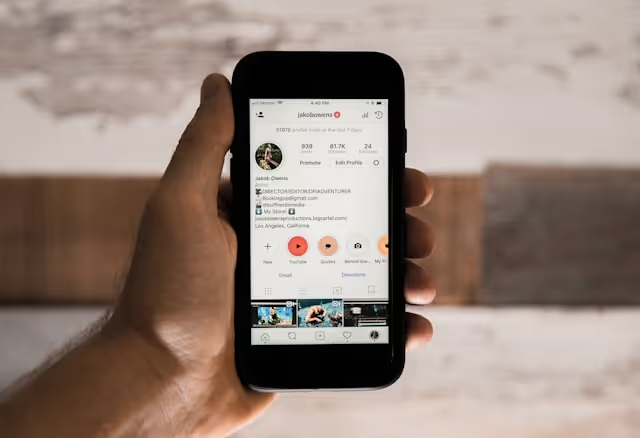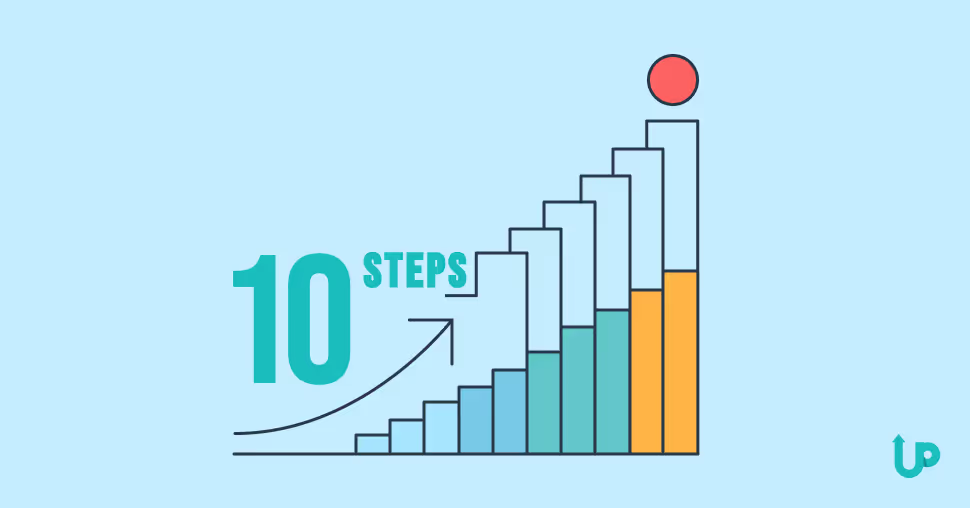If you use social media platforms, you’ve likely come across individuals known as “influencers.” These are content creators who curate and share content tailored to their specific niche or area of expertise.
Successful influencers collaborate with brands for sponsored content or partnerships. This prompts us to ask, “What is the premise behind influencer marketing?”
In this article, we will answer that question, and provide you with tips to incorporate influencer marketing into your business.
The Rise of Influencer Marketing in Today’s Digital Era
The widespread adoption of social media platforms has made it easier for anyone to gather a large number of followers. These platforms have become “ideal spaces” for influencers to connect with diverse audiences.
In addition to that, consumers have turned to online platforms not just for entertainment but also for information. Influencers are often perceived as authentic and relatable, and their content often feels like a recommendation from a friend — which makes their endorsements more effective.
Influencers also cater to specific niches, so brands that work with them can precisely target their desired audience.
Imagine a skincare company that has developed a new line of moisturizers. They decide to contact popular beauty influencers known for their skincare routines and product reviews. The company then offers the new moisturizers for free while the influencers create engaging content around the product.
Popular examples of content are unboxing videos, before and after photos, or reviews. The influencers share their opinion with their followers and provide recommendations on using the product. This is how influencer marketing works.
What Is the Premise Behind Influencer Marketing?
The fundamental idea behind influencer marketing is that influencers have built a trusting relationship with their audience, so their recommendations can sway the purchasing decisions of their followers. This is why they are called “influencers,” which derives from their ability to influence opinions and behaviors.
People who are new to the idea might ask, “What is the purpose of influencer marketing?” The primary aim of this marketing strategy is to harness the influence, credibility, and reach of influencers to help fulfill your business objectives, such as promoting products, services, or brands.
Let’s dive into the key elements behind influencer marketing:
Credibility
Influencers gain credibility by consistently creating high-quality, engaging, and relevant content. This content reinforces their expertise and dedication to their niche.
Moreover, in-depth knowledge about a particular subject matter enhances their credibility among followers interested in that niche.
For example, an influencer might specialize in sustainable living and eco-friendly practices. They might produce content such as tips for sustainable living, reviews of eco-friendly products, or vlogs showcasing their journey toward a greener lifestyle.
These types of content help them establish credibility in their niche.
In influencer marketing, an influencer's credibility is important because it helps them earn the trust of their audience. Credible influencers' recommendations also carry weight because they are known to be experts.
Trust
Influencers who share personal stories, challenges, and achievements create a more personal connection with their audience. This is why influencers are often perceived as more authentic and relatable than traditional celebrities, and this personal connection builds trust in their recommendations.
Moreover, trust is built through consistency by influencers who deliver valuable information regularly and provide honest reviews of products. Influencers with a history of reliable recommendations can build trust over time.

Social proof
Influencer marketing is grounded in the concept of social proof, which is the idea that people are more likely to make decisions based on the actions and recommendations of others. Influencers are perceived as online celebrities in their niches, which is why they have a similar impact to traditional celebrities.
Moreover, the number of followers an influencer has is a form of social proof. A large follower count suggests popularity and influence, which makes their recommendations more powerful!
When an influencer says they like a product or service, it's like giving it a thumbs up. People will think, "If so many others trust and follow this influencer, the thing they're talking about must be really good."
It's like a stamp of approval that makes us believe the product is top-notch.
Amplification of message
In influencer marketing, a brand can leverage the influencers’ reach, credibility, and audience engagement to increase the visibility and impact of their marketing messages. Influencers can disseminate these messages to a broader audience in a way that goes beyond traditional advertising. This way, brands can precisely reach their desired audience.
Moreover, influencers often have a presence on multiple social media platforms, and brands working with them can promote the message across various channels and reach audiences on different platforms.
Lastly, influencers can create content that has the potential to go viral. This makes it possible for a brand’s marketing messages to reach a wider online community.
Ways to Incorporate Influencer Marketing Into Your Business
Next, let’s answer the question: How does influencer marketing affect consumer behavior?
Consumers tend to follow the recommendations of people who they deem credible, trustworthy, and influential. This is why brands like yours can utilize this type of marketing strategy in your business.
Here are some ideas to get started:
Product Endorsements
Influencer marketing through product endorsements involves partnering with influencers to promote your brand’s products to their audience. To do this, you need to identify influencers who align with your values, target audience, or product niche.
Influencers will then create content that features the endorsed product. They will share this content on their social media platforms and engage with their followers.
Product endorsements are effective because influencers can recommend a product based on their personal experiences. It also allows for a more in-depth presentation of the product so that followers can learn about the features, benefits, and practical uses of the product in detail.
Giveaway Campaigns
Giveaways are often done to drive specific actions, such as website visits, social media follows, or product purchases. When it comes to influencer marketing, these campaigns involve collaborating with influencers to engage their audience.
Lesna, a Romania-based platform that specializes in contests and giveaways, worked with their client iStyle, an Apple reseller, to increase email subscribers. They used UpViral to conduct an influencer giveaway that resulted in 12,677 leads!
To achieve this, they reached out to Codin Maticiuc, an established influencer with over 300K followers.

Codin was featured in their campaign materials, which effectively helped build hype and engagement for the giveaway. To get the word out, Lesna promoted the campaign on social media and created some posts with Codin and the prize to be given away.
Guest Blogging
Guest blogging in influencer marketing involves partnering with an influencer in your target niche to develop a blog post and have it posted on their website or blog.
While the influencer is the primary author, there can be collaboration between the influencer and your brand.
For example, you can suggest topics or share key messages about your business. However, the influencer’s unique voice and perspective remain central to the content. The content is often posted on their website or blog, where they have a dedicated audience who trust their recommendations.
Within the guest post, links may point back to your website or the specific products or services being discussed. These links help drive traffic from the influencer’s platform to your brand.
Once the blog post is live, your brand and the influencer can agree on promoting it. This includes sharing the post on social media platforms, newsletters, or other marketing platforms.
Interviews and Q&A Sessions
You can conduct interviews and Q&A sessions with influencers and post them in written articles, podcast episodes, or live video sessions. The influencer’s insights and experiences can provide valuable content for your audience.
Think of it as having a chat with a knowledgeable friend who has a lot of other friends. They can talk about your business, and people who listen become interested in what you have to offer!
Educational Webinars or Workshops
Educational content can help position your brand as an authority in the industry while leveraging the influencer’s expertise. You can collaborate with influencers to host webinars or workshops related to your brand or niche.
For example, imagine that you are a fitness and wellness brand collaborating with a fitness influencer. You can conduct an educational webinar entitled, “Effective Home Workouts for Beginners.”
In the webinar, you can discuss warm-up routines, easy exercises, and motivational tips. You can integrate your brand’s products into the content, such as your fitness equipment or apparel!
Quick Tips to Keep in Mind When Using Influencer Marketing
If you’re planning to try it soon, you might be thinking, “What factors have the biggest impact on influencer marketing effectiveness?” An influencer’s alignment with your brand and their authenticity will impact the success of your campaign.
Other than that, you also need clear communication so both of you know what to expect, and you can build long-term relationships. 🫱🏻🫲🏼
If you want to implement influencer marketing in your marketing strategy, the following tips will be helpful:
#1: Choose the right influencers
Identify influencers whose content and audience align with your brand and target market. Their content should seamlessly fit within the context of your brand. Don’t overlook micro-influencers, because they likely have niche audiences that trust their recommendations.
#2: Explore different platforms
Choose platforms that cater to your target audience’s preferences. For example, Instagram is made up of younger users who prefer visual content. It is used by lifestyle, fashion, beauty, travel, and fitness influencers.
#3: Create brand guidelines
Brand guidelines are important in influencer marketing because they help influencers maintain brand consistency and create content that is consistent with your brand’s values, missions, and goals.
Your brand guidelines should include information about your brand identity, visual identity, a guide for content creation, legal and compliance, and key performance indicators (KPIs).

#4: Encourage authenticity
While influencer marketing is done for business purposes, it is still beneficial to encourage influencers to be authentic in their content. This is because authenticity is a key factor in building trust with their followers.
#5: Build long-term relationships
If you work with influencers that resonate with your brand, consider building long-term relationships with them. This allows them to genuinely connect with your brand, which improves their ability to promote your brand effectively.
Final Thoughts
Partnering with influencers can be effective in getting your brand out there. Thankfully, there are plenty of ways to do this, so you can find the right one that fits your business goals or preferences.
If you’re interested in running an influencer giveaway soon, you can use UpViral. It is a platform designed to make it easy for businesses to create and run contests and giveaways.
For more stories highlighting businesses’ success with UpViral, you can click here.





.png)